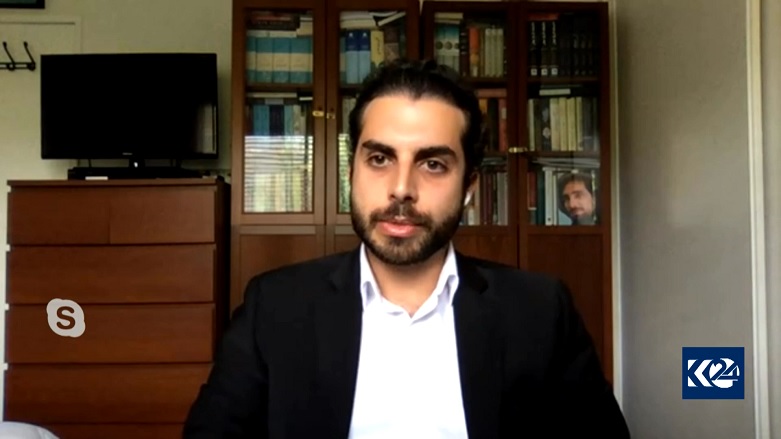'Our best model is Iraqi Kurdistan,' says group resisting Taliban rule in Afghanistan

ERBIL (Kurdistan 24) – An official from the National Resistance Front of Afghanistan, a group recently formed after the Taliban took control of Kabul this month, said on Monday that the Kurdistan Region of Iraq could serve as a model for decentralized rule in the Central Asian nation.
“Unfortunately, the peace process the United States started two years ago ultimately failed; failed to create a transitional government, it failed to form a power-sharing deal between the different political forces of Afghanistan,” said Ali Nazari, the organization's Head of Foreign Affairs, in an interview with Kurdistan 24.
The National Resistance Front of Afghanistan is a military alliance comprised of former Northern Alliance members and anti-Taliban fighters, centered in the Panjshir Valley, northeast of Kabul. It was founded by Ahmad Massoud, the son of Afghan resistance hero Ahmad Shah Massoud.
Panjshir province is the only one of 34 Afghan provinces that did not fall quickly to the Taliban following the recent sudden US pullout.
Read More: Biden reaffirms commitment to fight against terrorism in Middle East as US leaves Afghanistan
“A week has passed since [President] Ashraf Ghani fled the country, and the bureaucracy and the security forces have fragmented,” he said. “Basically the country has no state or government at the moment.”
Addressing whether or not Panjshir will continue its resistance to Taliban forces, Nazari said, “We prioritize peace and negotiations and we believe that the only way to achieve lasting peace in Afghanistan is through constructive talks and negotiations.”
“However, we are against aggression, if we see aggression, if we see invasion, if we see the narrative of dominance, we are ready. We are teady to defend ourselves and to defeat any enemy that tries to enter our region,” despite the province's current geographical and political isolation.
“We were isolated and surrounded in 1982 when the Soviet Union invaded Afghanistan and we were able to overcome that and defeat the red army,” Nazari remarked.
When asked about possible roads forward for Afghanistan, he said, “Afghanistan is very similar to Iraq; Afghanistan is a country of ethnic minorities. We don’t have an ethnic majority, and in a country like Afghanistan, we need a decentralized political system, just like the one that is in Iraq.”
“Our best model is Iraqi Kurdistan, as you have Iraqi Kurdistan ruled by its own values, and laws, and principles, while Baghdad is being ruled by its own laws and principles. We want the same in Afghanistan, Unfortunately, Afghanistan is not a homogeneous state.”
He explained that every ethnic group in Afghanistan “has the right to autonomy, self-determination, equal rights, and freedom,” stressing that the National Resistance Front of Afghanistan is against sectarian views, as is the vast majority of the public.
He said that his group is advocating a “power-sharing deal that distributes power equally to all ethnic groups, that creates a decentralized state. We are willing to work with anyone.”
Nazari concluded that, without such a deal, “Afghanistan will remain a hub for international terrorism and we will see another September 11 in the future.”
Editing by John J. Catherine